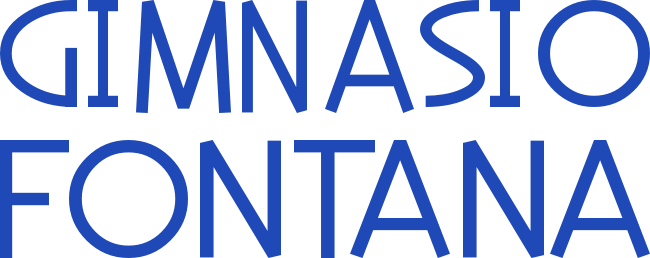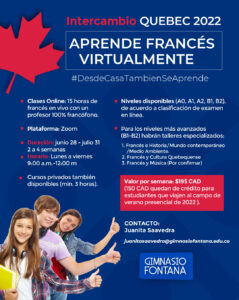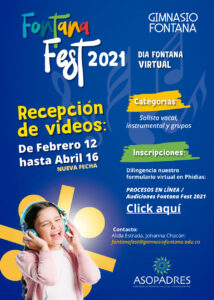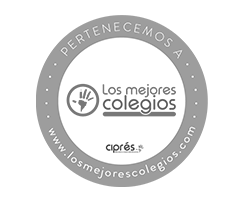Edición 26 Marzo Año escolar 2020-2021 Del 15 al 19 de marzo
ANUNCIOS GENERALES
¿DÓNDE SIENTES LAS EMOCIONES?
En el Gimnasio Fontana educamos desde las emociones, por eso para nosotros es muy importante identificar dónde las sentimos. Algunos de nuestros estudiantes nos cuentan donde y cómo las sienten:
PROTOCOLOS DE BIOSEGURIDAD
Diligencia todos los días
tu estado de salud en Phidias:
PERSONAJE FONTANA
NATALIA
ZULETA TRIANA
Directora de Marketing e Innovación

https://www.larepublica.co/analisis/natalia-zuleta-3133531/reflexiones-de-la-post-pandemia-3133523
Qué te motivó a escribir sobre los efectos postpandemia y cómo crees que estos efectos se reflejan en el Gimnasio Fontana?
La pandemia ha despertado en mi profundas reflexiones y cambios. También he tenido la oportunidad de recuperar espacios y descubrir cosas acerca de mi y mi familia. La introspección es una maravillosa herramienta para crecer. Quise escribir para compartir mi visión de lo que ha sido este convulsionado año y que la gente pueda reconocerse en mis palabras y saber que todos estamos juntos en esto. Para mi la escritura se ha convertido en un espacio esencial de creación y crecimiento que espero seguir compartiendo con el mundo. En este momento, todos tenemos la responsabilidad de capitalizar y compartir aprendizajes de este duro escenario de pandemia.
¿Puedes compartirnos tus principales logros como estudiante y profesional?
Como estudiante mientras hice mi maestría de cine en Londres coproduje y dirigí varios cortometrajes en cine. Para mi fue un reto enorme escribir guiones en inglés y desarrollar proyectos cinematográficos en un país lejano. Cuando estudié comunicación social trabajé al mismo tiempo como periodista del Diario La Prensa, esto me sirvió mucho para fortalecer mis habilidades de escritura y madurar profesionalmente. En cuanto a mi trayectoria profesional, he logrado establecer en el colegio el área de Marketing e Innovación, el cual desarrolla todas las estrategias de comunicación interna y externa, promoción y relaciones públicas del colegio, así como proyectos especiales. Esto ha sido definitivo para posicionar nuestra pedagogía de la creatividad y sostenibilidad en el entorno. También como líder de sostenibilidad del Gimnasio Fontana, llevé al colegio a involucrarse en iniciativas sostenibles a nivel nacional como la Carrera Verde y a ser el primer colegio carbono neutro de Colombia.
Recientemente hemos implementado la economía circular siendo pioneros en este tema. Uno de los mayores logros que he tenido ha sido el de publicar ya tres libros en temas de creatividad y sostenibilidad. Amo escribir como una forma de conmover mentes y corazones y transformar positivamente el mundo.
Cómo aplicas la sostenibilidad y la creatividad dentro y fuera del Gimnasio Fontana?
Para mi la creatividad es una forma de vivir la vida que se conecta con el espíritu y la espontaneidad. Soy una persona muy inquieta intelectualmente y me encanta viajar, esos son alimentos importantes para la curiosidad y la capacidad de asombro que son en esencia motores de la creatividad. Trato en mi cotidianidad de permitirme fluir, escuchar mi mente y corazón y tener rutinas que contribuyan a ampliar mi visión del mundo; la música, el yoga y la lectura se han convertido en formas de alimentar y expresar mi creatividad. Con respecto a la sostenibilidad, para mi es un lente y una forma de actuar sustentada en unos hábitos responsables y conscientes en la cotidianidad. El tener la capacidad de entender que somos parte de un todo, que estamos conectados y somos interdependientes, para así actuar en consecuencia. Me fijo mucho en lo que compro, siembro árboles y soy speaker para extender el mensaje de la sostenibilidad fuera del colegio.
Cómo crees que el Gimnasio Fontana te ayudó a desarrollar tu mejor versión (Best Self)?
El Gimnasio Fontana es un escenario increíble de crecimiento para jóvenes y adultos. La esencia del colegio sustentada en el ser ha sido siempre un motor para mi. La cultura de innovación me reta permanentemente y me permite explorar mi creatividad para impactar al mundo. Trabajar en educación es algo que me nutre el alma y alimenta mi sentido de trascendencia. He crecido intelectual y espiritualmente en el contacto con los niños, con los profesores y con toda una comunidad que se fundamenta en la unidad y la innovación.
ACTIVIDADES: Nivel 1, 2 y 3
Promoción 2031
Por iniciativa de los padres de familia, esta semana nuestros estudiantes de Primero 1° recibieron sus busos de la promoción 2031.
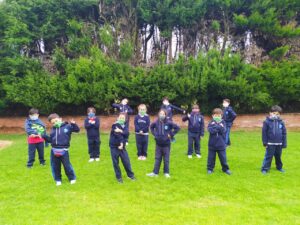 |
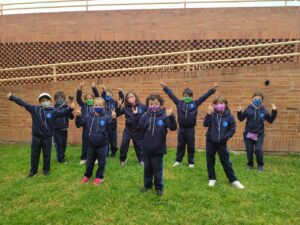 |
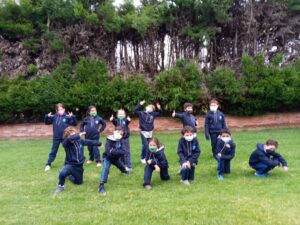 |
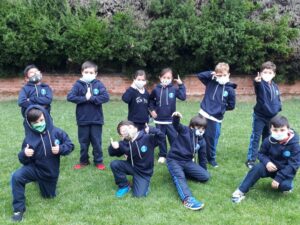 |
Intercambio QUEBEC 2022
MENÚ
BIBLIOTECA
Keep your brain in shape by reading more books
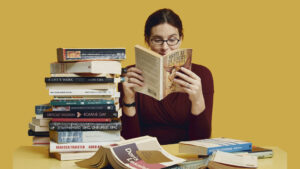
Reading books can exercise your brain and even boost your emotional intelligence. Despite this, many people don’t read frequently and our overall book-reading time is on the decline.
It’s time to buck this trend, so grab a book off the shelf in your home, check out your local library, or turn on your neglected e-reader and to exercise your brain.
Why you should embrace books?
Science has found that reading is essential for a healthy brain. We already know reading is good for children’s developing noggins: A study of twins published by the Society for Research in Child Development found that kids who started reading at an earlier age went on to perform better on certain intelligence tests, such as analyses of their vocabulary size.
Other studies show that reading continues to develop the brains of adults. One 2012 Stanford University study, where people read passages of Jane Austen while inside an MRI, indicates that different types of reading exercise different parts of your brain. As you get older, a more recent study suggests, reading might help slow down or even halt cognitive decline. Words on a page can also improve your emotional intelligence. A 2016 overview of the issue demonstrated that fiction readers tend to have a well-developed sense of what psychologists call “theory of mind.” This is the ability to attribute mental states to yourself and to others, and to grasp that other people may have different desires, emotions, and thoughts. As a result, regular readers show more empathy for other people.
So books can not only stretch your brain, but also make you a better person. Now to dig down and actually read more.
How to actually read more?
|
You’ve got a busy schedule—sometimes you just can’t find the time to read. That’s why you need to start small. When setting a new goal, you should aim for a concrete task that you can build on later. So start your habit by reading, say, five pages of a book that interests you every day. Once you’re hitting five pages a day, try 10, then 20, and keep pushing your goal horizon upward. As you start creating this routine, be kind. Self-criticism, aka “self-bullying,” has been shown to keep you from achieving your goals. So cut yourself some slack, especially if you’re starting from zero. Even if you miss a day, recognize that we all sometimes stay out late, get wrapped up in a TV show, or just forget. Be willing to pick yourself back up and honor the long-term commitment the next day. To fit in those five pages, it also helps to keep a book, audiobook app, or e-reader on you as you go about the day. Then, when you have some down time you can open your text instead of pulling up your favorite smartphone game. |
 |
Tis brings us to the great debate: pages versus screens versus audio. While paper is still the clear winner in the court of public opinion, science hasn’t proven that physical books are inherently better than digital ones.
Academic research has mostly focused on retention, that is, how much of a book’s events you remember after you read it. Although paper books may have a leg up on that score, their advantage appears to depend on environment and context. The aforementioned pro-paper study took place in a laboratory setting: Students all read the same text, but some looked at the words on paper and others viewed an on-screen PDF. A different study looked at kids in the classroom, reading from either a book or an iPad, and found no meaningful difference between the two media.
As for audiobooks, the research so far has found that they stimulate the brain just as deeply as black-and-white pages, although they affect your gray matter somewhat differently. Because you’re listening to a story, you’re using different methods to decode and comprehend it. With print books, you need to provide the voice, called the prosody—you’re imagining the tune and rhythm of speech, the intonation, the stress on certain syllables, and so on. With audio, the voice actor provides that information for you, so your brain is simply working to understand the prosody in your ears.
Prosody aside, audiobooks still affect your thoughts and feelings. In other words, yes, listening to them “counts” as reading. This is good news, because they make it easy to squeeze more book time into your schedule. You can plug in some headphones and listen to an audiobook even when you need to keep your eyes peeled—like when you ride, walk, or drive to work. In fact, on the highway, an audiobook may help you pay attention: The slight distraction lets your brain keep a handle on repetitive or monotonous tasks like long drives on the highway.
Ultimately, if you hope to get a reading habit going, you shouldn’t dismiss paper, digital, or audio. Go with what makes the most sense for your needs and don’t be afraid to change things up depending on the occasion.
Reading has the power to boost your productivity. Taking a break from one task to focus on another, one that uses different skills, can improve your focus and short-term memory. So mentally stepping away for a moment lets you return to the task with a fresh vision and renewed focus. Next time you lose motivation at work, the solution could be taking in a few pages during your lunch break.
Taken from: Popular Science
WEBINARS FONTANA
¡NO TE LO PUEDES PERDER!
La creatividad como herramienta empresarial
ASOPADRES
DÍA FONTANA
Nos hace felices confirmarte que nuestro Día Fontana se realizará el 1 de Mayo!!
FONTANA FEST2021 VIRTUAL
¡Hemos extendido el plazo para que audiciones!
Ahora podrás presentarte hasta el 16 de abril y ser parte del Fontana Fest2021, date prisa! Entra y llena el formulario de Phidias: https://gimnasiofontana.phidias.co/
CONSEJO DE PADRES
SEXUALIDAD EN NIÑOS 3/4
Desarrollo sexual en la infancia
Conferencista: Claudia Sánchez Salamanca, psicóloga clínica y psicoterapeuta.
—-
Este es un video producido por el Consejo de Padres del Colegio Gimnasio Fontana, con el fin de articular las necesidades de los padres de familia con el proyecto educativo del colegio, a través de herramientas de formación innovadoras. Así como aportar y generar un impacto positivo en la formación de nuestros hijos. Con apoyo de Asopadres y del Colegio Gimnasio Fontana.
